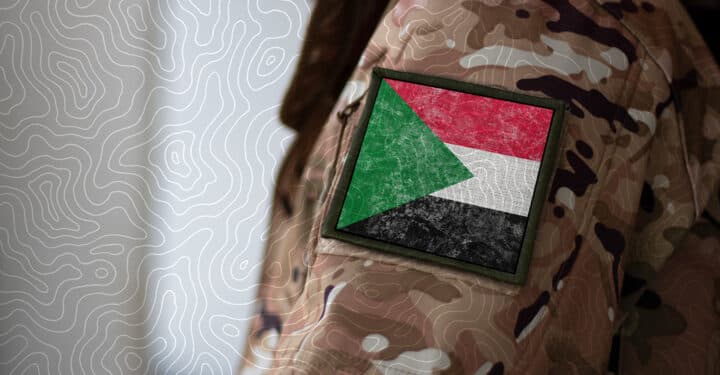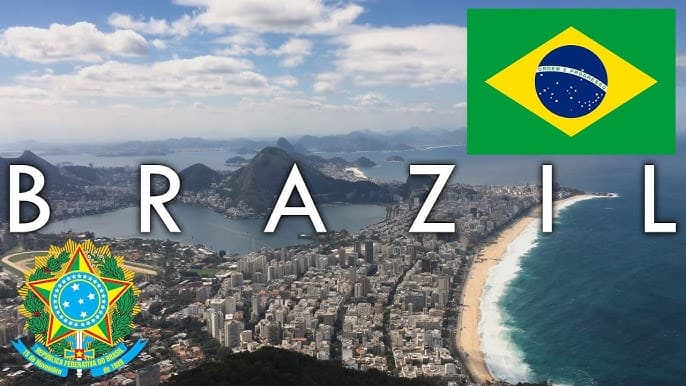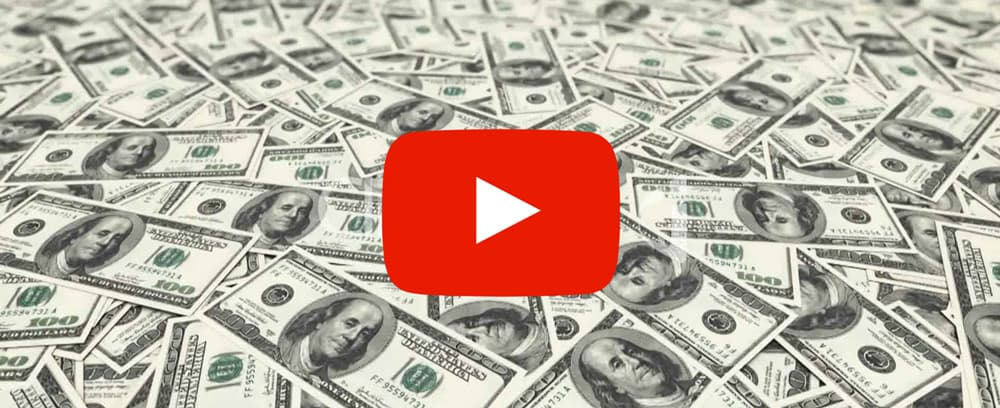
Navigating YouTube Monetization Challenges in Sudan
summary
YouTube Monetization in Sudan refers to the challenges and opportunities faced by Sudanese content creators in earning revenue through the platform. As of 2023, Sudan remains excluded from YouTube's monetization programs, including the YouTube Partner Program (YPP), which enables creators to earn income through ads, memberships, and other features. This exclusion has forced many Sudanese YouTubers to register their channels in neighboring countries like Uganda and Kenya to access monetization tools, highlighting the need for regulatory reforms and improved digital infrastructure in Sudan.[1][2][3]
The absence of robust data protection laws, intellectual property regulations, and community standards has further hindered the growth of online content creation in Sudan. Despite these barriers, Sudanese creators have built substantial followings, with some influencers amassing hundreds of thousands of subscribers. However, without direct access to YouTube's monetization tools, their earnings remain limited, and they often rely on alternative revenue streams such as sponsorships, merchandise sales, and affiliate marketing.[4][5][6]
Efforts to modernize Sudan's digital economy, including initiatives like the ICT Public Policy & Regulations Stream, aim to address these challenges by developing a progressive regulatory framework. However, as of 2023, these efforts have yet to yield significant results for YouTube monetization. Additionally, the ongoing conflict in Sudan, which began in April 2023, has exacerbated internet shutdowns and connectivity issues, further complicating content creation and monetization efforts.[7][8][9]
Despite these obstacles, Sudanese creators continue to explore innovative strategies to monetize their content, leveraging platforms like Patreon, Uscreen, and crowdfunding to diversify their income. The future of YouTube monetization in Sudan depends on improvements in digital infrastructure, regulatory reforms, and increased support from global initiatives like YouTube's #YouTubeBlack Voices Fund, which has benefited creators in other African nations.[10][11][12]
History of YouTube Monetization in Sudan
YouTube monetization in Sudan has faced significant challenges due to the country's underdeveloped digital infrastructure and regulatory framework. As of 2023, Sudan remains excluded from YouTube's monetization programs, including the YouTube Partner Program, which allows creators to earn revenue through ads, memberships, and other features[1][2]. This exclusion has forced many Sudanese content creators to seek alternative solutions to monetize their content.
Early Challenges and Digital Exodus
The absence of data protection laws, intellectual property regulations, and community standards in Sudan has hindered the growth of online businesses and content creation[3]. Sudanese YouTubers, particularly those with substantial followings, have been compelled to register their channels in neighboring countries such as Uganda and Kenya to access monetization opportunities[4]. This digital exodus has allowed creators to bypass the limitations imposed by Sudan's exclusion from global digital marketplaces, but it has also highlighted the need for local regulatory reforms to support the digital economy[3][5].
Regional Comparisons and Initiatives
While Sudan lags behind, other African nations such as Nigeria, Kenya, and South Africa have seen significant progress in digital content creation and monetization. For instance, YouTube's #YouTubeBlackVoices Fund has supported creators from these countries through grants and training programs, fostering a thriving ecosystem for African content creators[6]. In contrast, Sudanese creators have been left out of such initiatives, further exacerbating the disparity in opportunities for online income generation[1].
Regulatory Efforts and Future Prospects
Efforts to address these challenges have been underway, with initiatives like the ICT Public Policy & Regulations Stream aiming to assess and modernize Sudan's ICT laws and regulations. The goal is to develop a progressive regulatory framework that supports digital innovation and positions Sudan as a leader in the digital economy[5]. However, as of 2023, these efforts have yet to yield tangible results for YouTube monetization in the country.
Impact on Sudanese Creators
The inability to monetize content directly from Sudan has forced creators to rely on limited endorsement deals and alternative revenue streams[1]. Despite these challenges, some Sudanese YouTubers have managed to build substantial followings, with top influencers like @UC8semOV-MqT3enT4M0mS1ow and @UCL42dFucNLBSqIgpw2ECNBg amassing hundreds of thousands of subscribers[7]. However, without access to YouTube's monetization tools, their potential earnings remain constrained.
Eligibility Criteria for Monetization
To monetize content on YouTube in Sudan, creators must meet specific eligibility criteria set by the YouTube Partner Program (YPP). These requirements ensure that creators produce high-quality, advertiser-friendly content while maintaining compliance with YouTube's community guidelines and monetization policies[8][9].
Subscriber and Watch Time Thresholds
Historically, creators needed 1,000 subscribers and either 4,000 hours of public video watch time in the last 12 months or 10 million valid public Shorts views in the last 90 days to qualify for the YPP[10][11]. However, in June 2023, YouTube announced a reduction in these thresholds for certain regions, allowing creators with 500 subscribers, 3,000 hours of watch time, or 3 million Shorts views to apply for monetization[10]. This change aimed to make the program more accessible to smaller creators, though it remains unclear if Sudan is included in this expanded eligibility[12].
Content Guidelines and Compliance
Creators must adhere to YouTube's Advertiser-Friendly Content Guidelines and broader monetization policies to qualify for and maintain monetization[9][13]. This includes avoiding content that violates community standards, such as hate speech, violence, or misinformation[8][14]. Additionally, creators must ensure their videos comply with copyright laws and other legal requirements[14].
Challenges in Sudan
Monetizing content in Sudan presents unique challenges due to the country's low internet penetration rate, which stood at 28.4% as of January 2023[15]. High data costs and frequent internet shutdowns, particularly during periods of conflict, further hinder creators' ability to produce and upload content consistently[16][17]. These barriers make it difficult for Sudanese creators to meet the watch time and upload frequency requirements necessary for YPP eligibility[11].
Application Process
Once eligibility thresholds are met, creators can apply for the YPP through YouTube Studio on a computer or mobile device. The application process involves a review of the channel's content and adherence to YouTube's policies[12]. If approved, creators gain access to monetization features such as ad revenue, channel memberships, and Super Chats[18][14].
Economic Impact
YouTube monetization has the potential to significantly impact the economy of Sudan, particularly for content creators who rely on the platform as a source of income. While ad revenue can provide a steady stream of income, enabling creators to reinvest in their businesses and grow their channels, the process of becoming eligible for monetization on YouTube can be challenging and time-consuming[19]. In Sudan, recurring internet shutdowns and the ongoing conflict since April 2023 have further complicated the situation, disrupting the telecom sector and hindering creators' ability to consistently upload content and engage with their audience[20][21]. Despite these challenges, Sudanese creators can still make money online by creating YouTube channels, focusing on niches such as education, entertainment, or lifestyle, and producing high-quality, engaging content[22].
However, YouTube's monetization programs, including the YouTube Partner Program (YPP), are not available in South Sudan, limiting opportunities for creators in the region to earn through traditional ad revenue[1]. This has led to a need for alternative monetization strategies, such as leveraging limited endorsement deals or exploring other income streams like sponsorships, merchandise, and affiliate marketing[1][23]. The Revenue Per Mille (RPM) rates, which determine how much creators earn per 1,000 views, vary widely by country, and Sudan's rates are generally lower compared to countries like Australia or the United States, where CPM rates are significantly higher[24][25]. This disparity highlights the economic challenges faced by Sudanese creators in maximizing their earnings on the platform.
Despite these obstacles, some Sudanese creators have managed to achieve financial success on YouTube. For example, the channel "On Time Sudan" reported earnings of $119 in a recent 30-day period, demonstrating that even in challenging environments, monetization is possible[26]. Additionally, YouTube has initiated support programs for African creators, including virtual and in-person training workshops, which aim to help Sudanese creators improve their skills and grow their channels[27]. These initiatives could play a crucial role in boosting the economic prospects of content creators in Sudan, enabling them to better navigate the platform's monetization policies and adapt to its evolving requirements[28].
Challenges and Barriers
YouTube monetization in Sudan faces numerous challenges and barriers, ranging from infrastructural limitations to regulatory restrictions. These obstacles hinder content creators from fully capitalizing on the platform's revenue opportunities.
High Internet Costs and Low Penetration
One of the most significant barriers to content creation in Sudan is the prohibitive cost of internet data. High data tariffs make accessing the internet expensive, limiting creators' ability to upload content consistently and engage with their audience[17]. Additionally, internet penetration remains low, with only 28.4 percent of the population using the internet as of January 2023[15]. This low penetration rate restricts the potential audience for Sudanese creators, making it difficult to build a substantial following.
Internet Censorship and Restrictions
Sudan has a history of strict internet censorship, which impacts freedom of expression and access to information. The Telecommunications and Postal Regulatory Authority (TPRA) has historically managed online censorship through its internet service control unit, blocking news websites and enforcing cybercrime legislation[29][30]. These restrictions can limit the types of content creators can produce and share, as any material deemed to violate public order or morality can lead to legal consequences[31]. Furthermore, the ongoing conflict in Sudan has exacerbated these issues, with internet blackouts and disruptions becoming more frequent, further isolating creators from their audiences[16][32].
Monetization Program Unavailability
YouTube's monetization programs are not available in South Sudan, creating a significant barrier for creators in the region[1]. This limitation forces creators to rely on limited endorsement deals and alternative revenue streams, which may not be as lucrative or sustainable[1]. Even in regions where monetization is available, creators face challenges such as the "Adpocalypse," a decline in ad revenue caused by changes in YouTube's advertising policies[33]. These fluctuations in revenue can make it difficult for creators to maintain financial stability.
Infrastructure and Connectivity Issues
The ongoing conflict in Sudan has severely impacted internet infrastructure, with armed clashes leading to widespread outages and disruptions[20][16]. The seizure of internet service providers' data centers by the Rapid Support Forces (RSF) in Khartoum has triggered prolonged blackouts, plunging the nation into digital darkness[16]. These outages not only hinder content creation but also disrupt the coordination of emergency assistance and humanitarian services, further complicating the situation for creators and their audiences[34].
Regulatory and Compliance Challenges
Sudan's regulatory framework for digital payment services adds another layer of complexity for creators. Compliance with anti-money laundering (AML) requirements and know-your-customer (KYC) regulations can be cumbersome, particularly for smaller creators who may lack the resources to navigate these legal hurdles[35]. Additionally, the lack of platform-agnostic publishing of trade rules and regulations can create further obstacles for creators trying to monetize their content[36].
Alternative Monetization Strategies
While ad revenue through the YouTube Partner Program (YPP) is a primary income source for many creators, there are several alternative monetization strategies that YouTubers in Sudan can explore to diversify their earnings. These methods are particularly useful for creators who may not yet meet YPP eligibility requirements or who want to supplement their ad-based income.
Merchandise Sales
Creating and selling branded merchandise, such as t-shirts, hoodies, or accessories, is another popular way to monetize a YouTube channel. By leveraging their fan base, creators can turn their brand into a profitable venture. Platforms like Shopify and social media marketplaces make it easier to set up and manage online stores[37][38][39].
Crowdfunding and Fan Support
Crowdfunding platforms like Patreon and Ko-fi enable fans to directly support their favorite creators through monthly subscriptions or one-time donations. This model fosters a closer connection with the audience and provides a steady income stream, especially for creators producing niche or high-quality content[39][40].
Affiliate Marketing
Affiliate marketing allows creators to earn commissions by promoting products or services and including affiliate links in their video descriptions. When viewers make purchases through these links, the creator receives a percentage of the sale. This strategy is particularly effective for niche content creators who can recommend relevant products to their audience[37][41].
Sponsorships and Brand Deals
Sponsorships involve partnering with brands to promote their products or services in videos. This can be a lucrative option, especially for creators with a dedicated and engaged audience. Sponsors often pay based on the creator's reach, engagement, and niche, making it a flexible income source[37][41].
Online Courses and Consulting
Creators with specialized knowledge can monetize their expertise by offering online courses, e-books, or consulting services. This strategy not only generates additional income but also establishes the creator as an authority in their field. Platforms like Teachable and Udemy can be used to host and sell these resources[39].
Live Performances and Events
For creators in creative fields like music or entertainment, live performances, virtual events, or workshops can be a significant revenue source. These events can be promoted through the YouTube channel, leveraging the existing audience to drive ticket sales[38].
Leveraging YouTube Shorts and Creator Music
With the expansion of the YouTube Partner Program, creators can now earn ad revenue from Shorts and access Creator Music for monetization opportunities. These features provide additional avenues for income, especially for creators focusing on short-form content[42].
By combining these strategies, YouTubers in Sudan can build a diversified income portfolio, reducing reliance on ad revenue and creating a more sustainable financial model for their channels[19][39].
Success Stories
YouTube has become a platform for financial success and creative expression in Sudan, with several creators achieving notable milestones despite the challenges of monetization and content creation in the region. One of the standout success stories is Ahmed Jaffar, a Sudanese YouTuber with over 24,900 subscribers. Since starting his channel in 2012, Jaffar has created content on sports, gaming, and comedic challenges, while also addressing Sudan's political and economic issues. His ability to engage with local audiences has made him a prominent figure in Sudan's YouTube community[43].
Another notable success is the influencer with the channel ID @UC8semOV-MqT3enT4M0mS1ow, who has amassed an impressive 615,000 subscribers within Sudan, making them the most followed YouTube influencer in the country. Close behind is @UCL42dFucNLBSqIgpw2ECNBg, with a global audience of 584,000 subscribers[7]. These creators demonstrate the potential for Sudanese YouTubers to build substantial followings and monetize their content effectively.
However, success on YouTube in Sudan often requires navigating unique challenges. For instance, some South Sudanese creators have resorted to registering their channels from other countries to meet YouTube's monetization requirements, highlighting the barriers faced by creators in the region[4]. Despite these hurdles, the success of these creators underscores the growing influence of YouTube as a platform for financial independence and creative expression in Sudan.
Future Prospects
The future of YouTube monetization in Sudan is shaped by a combination of opportunities and challenges, driven by the country's evolving digital landscape and the global trends in content creation. As YouTube continues to expand its monetization options, Sudanese creators face unique hurdles due to infrastructure deficiencies and regulatory constraints.
Infrastructure and Connectivity Challenges
Internet penetration in Sudan remains low, with only 28.4% of the population'approximately 13.5 million people'using the internet as of January 2023[15]. This figure has seen minimal growth, with 28.7% reported in February 2024[44]. The ongoing civil war, which began in April 2023, has further destabilized internet connectivity, making it difficult for creators to consistently upload content and engage with their audiences[45][44]. Limited access to electricity and unreliable internet services pose significant barriers to content creation and monetization[17][21].
Regulatory Environment
Sudan's regulatory framework for information and communication technology (ICT) is undergoing assessment to address gaps and align with a progressive digital ecosystem[5]. However, the current cybercrimes law has been criticized for enabling the suppression of dissent and restricting freedom of expression online[46]. These repressive measures hinder the growth of a vibrant digital content creation community, as creators may face harassment or censorship under the guise of combating false information[46].
Opportunities for Growth
Despite these challenges, YouTube has shown commitment to supporting creators in Africa, including Sudan, through initiatives like the #YouTubeBlack Voices Fund, which provides financial grants to content creators[47]. Additionally, the YouTube Partner Program offers Sudanese creators opportunities to monetize their content through ads, memberships, and merchandise sales[18]. The introduction of monetization options for Shorts and affordable music licensing for long-form videos further expands revenue streams for creators[48].
Exploring Alternative Platforms
Given the infrastructural and regulatory challenges in Sudan, some creators may explore alternative platforms for content monetization. Platforms like Uscreen, which offer subscription-based models and gated content, provide viable alternatives to YouTube[49]. Diversifying income sources can help creators mitigate the risks associated with Sudan's unstable digital environment.
Related Topics and Links
Internet Freedom and Regulation in Sudan
Internet freedom in Sudan has faced significant challenges, particularly due to government-imposed restrictions and amendments to laws such as the Law on Combating Cybercrimes (LCC). These measures have included mandatory prison sentences and fines for defamation, as well as internet shutdowns during periods of political unrest, such as the conflict between the Rapid Support Forces (RSF) and the Sudanese Armed Forces (SAF) in 2023[15][16]. Despite these challenges, transitional authorities have expressed commitments to improving internet freedom and cutting ties with past authoritarian practices[50].
E-Commerce and Digital Infrastructure
Sudan's e-commerce landscape is shaped by its evolving legal frameworks and digital infrastructure. The government has taken steps to publish trade regulations in multiple languages, including Arabic and English, to comply with international obligations such as the WTO Trade Facilitation Agreement (TFA)[36]. However, internet blackouts and limited digital access, particularly in displacement-affected communities, continue to hinder the growth of online businesses and consumer rights protection[51][45].
Social Media and Influencers in Sudan
Social media platforms, including YouTube, play a significant role in Sudan's digital landscape. Influencers such as @UC8semOV-MqT3enT4M0mS1ow and @UCL42dFucNLBSqIgpw2ECNBg have amassed substantial followings, highlighting the potential for digital content creation and monetization in the country[7]. However, the broader context of internet restrictions and political instability poses challenges for content creators and businesses relying on online platforms[15][16].
Humanitarian and Political Context
The ongoing conflict in Sudan since April 2023 has exacerbated issues related to internet access and digital rights. Internet shutdowns have been used as a tool of control, impacting communication, access to information, and the ability of businesses and individuals to operate online[16]. International organizations, including the United Nations, have called for urgent action to address the humanitarian crisis and restore stability in the region[52].
Citations and Further Reading
The evolving landscape of YouTube monetization in Sudan reflects broader global trends in the creator economy, while also addressing unique regional challenges. The monetization of local content in South Sudan, for instance, depends on agreements regarding community standards and data regulations, as highlighted by Adok[53]. Additionally, the importance of comprehensive legal frameworks for digital activities in Sudan has been emphasized, particularly in promoting e-commerce and protecting consumer rights[51].
A digital needs assessment study conducted in August 2023 in regions such as Al Jazira, Gedaref, and White Nile provided insights into Sudan's current digital capacity and information needs, which are critical for understanding the context of online content creation and monetization[54]. Furthermore, the lowering of eligibility requirements for the YouTube Partner Program (YPP) in 2023 has opened new opportunities for smaller creators in Sudan to monetize their content through methods such as paid chat, tipping, and channel memberships[55].
For further reading, the International Journal of Creative Research Thoughts (IJCRT) offers an in-depth analysis of monetization strategies and challenges faced by YouTubers in the creator economy, which can provide valuable insights for Sudanese creators navigating the platform[56]. Additionally, discussions on the upcoming changes to YouTube monetization in 2023 are available in various online resources, offering creators in Sudan a chance to stay informed about the latest updates affecting their content[57].
These resources collectively provide a foundation for understanding the opportunities and challenges of YouTube monetization in Sudan, as well as the regulatory and infrastructural factors influencing the digital landscape in the region.
Relevant Resources and Organizations
In South Sudan, the monetization of local content on platforms like YouTube is closely tied to the development of community standards and data protection frameworks. Adok has emphasized that reaching agreements on these standards is crucial for enabling content creators to effectively monetize their work[53]. Additionally, the ICT Public Policy & Regulations Stream plays a significant role in assessing and improving existing ICT laws and regulations in Sudan. This initiative aims to create a progressive ecosystem that supports content creators by addressing gaps and recommending necessary amendments to foster a conducive environment for digital content monetization[5].
YouTube has also taken steps to support African content creators, including those in Sudan, through virtual and in-person training programs. These initiatives, such as the Creator 360 virtual workshop and Creator Day workshops, provide creators with the skills and knowledge needed to grow their channels and improve their content quality[27]. However, challenges such as inconsistent internet access and the lack of robust data protection laws continue to hinder creators' ability to fully capitalize on monetization opportunities[21][4].
Beyond YouTube, content creators in Sudan are exploring alternative platforms and strategies to diversify their income streams. Platforms like Uscreen, Patreon, and Ko-fi offer creators the ability to monetize their content through subscription models, fan support, and gated content, providing greater flexibility and audience engagement[39][49]. These resources and organizations collectively contribute to building a more sustainable and resilient ecosystem for content creators in Sudan.


